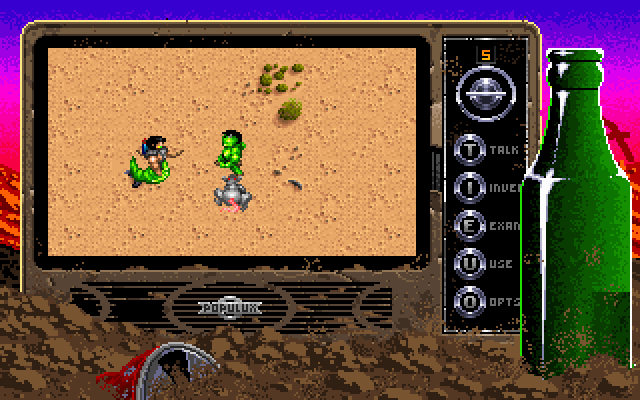There's no point denying that the damsel in distress is one of the most commonly employed tropes in game design - or any other story-telling medium for that matter.
Why? The short, simple answer is that mostly males make games, and we like to tell stories that are personal and relevant to us. Making the protagonist male is just closer at hand - and if the one you're saving can also be a romantic interest, you have an effective and functional dramaturgy right there.
What really bothers me is when designers resort to gender stereotypes, with no interest in exploring their characters' depth. If the female character is only a sexualized, weak, silly girl, and the male is only a strong, battle-hardened, emotionally inhibited lone wolf, then you have a problem. (Every action/adventure movie from the 80's and 90's.)
Or if only the male character is nerdy, knowledgeable and witty, and the female part is pretty and popular, waiting to be won over and finally accept the hero's shortcomings, thanks to his genuine, geeky charm. (Modern geek comedies, Big Bang theory and similar shows).
Or if the female is enigmatic and quirky, fleeting and singular, like a mythical hind in the forest, full of mental scars and commitment issues. (Garden State, Eternal sunshine of the spotless mind, lots of indie dramas).
A problem arises when designers try to remedy this by just reversing the gender roles, because that can appear patronizing instead. "See, in our game, the girl is super tough, and she beats up men! That's radical and correct, isn't it?" No it's not - you're just pointing out that women need some sort of special treatment to compensate for stuff.
I hated the way the female protagonist in "The girl with the dragon tattoo" was portrayed, because it was basically the typical victim turned revenger. The Swedish title was "Men who hate women", which is a pretty straight-forward title, but what we saw was a girl who (justifiably) hated men. Is writing a novel like that modern and forward-thinking? No, because it still discriminates. It still victimizes women and put them on some sort of morally superior pedestal.
Now, a truly modern, non-stereotypical story would have a young man be taken advantage of by various women, and end up taking revenge on them. Because if we want women to appear strong and independent, they too must be able to handle ending up on that end of the spectrum.
Sure, we can avoid the clichées and stereotypes the best we can, but as long as mostly men create games and design characters, male heroes will predominate, and they will be better explored and more deeply portrayed, and more often than not will the recipient of their assistance, and the target for their romantic efforts, and the prize for their endevours, be female.
Why? The short, simple answer is that mostly males make games, and we like to tell stories that are personal and relevant to us. Making the protagonist male is just closer at hand - and if the one you're saving can also be a romantic interest, you have an effective and functional dramaturgy right there.
What really bothers me is when designers resort to gender stereotypes, with no interest in exploring their characters' depth. If the female character is only a sexualized, weak, silly girl, and the male is only a strong, battle-hardened, emotionally inhibited lone wolf, then you have a problem. (Every action/adventure movie from the 80's and 90's.)
Or if only the male character is nerdy, knowledgeable and witty, and the female part is pretty and popular, waiting to be won over and finally accept the hero's shortcomings, thanks to his genuine, geeky charm. (Modern geek comedies, Big Bang theory and similar shows).
Or if the female is enigmatic and quirky, fleeting and singular, like a mythical hind in the forest, full of mental scars and commitment issues. (Garden State, Eternal sunshine of the spotless mind, lots of indie dramas).
A problem arises when designers try to remedy this by just reversing the gender roles, because that can appear patronizing instead. "See, in our game, the girl is super tough, and she beats up men! That's radical and correct, isn't it?" No it's not - you're just pointing out that women need some sort of special treatment to compensate for stuff.
I hated the way the female protagonist in "The girl with the dragon tattoo" was portrayed, because it was basically the typical victim turned revenger. The Swedish title was "Men who hate women", which is a pretty straight-forward title, but what we saw was a girl who (justifiably) hated men. Is writing a novel like that modern and forward-thinking? No, because it still discriminates. It still victimizes women and put them on some sort of morally superior pedestal.
Now, a truly modern, non-stereotypical story would have a young man be taken advantage of by various women, and end up taking revenge on them. Because if we want women to appear strong and independent, they too must be able to handle ending up on that end of the spectrum.
Sure, we can avoid the clichées and stereotypes the best we can, but as long as mostly men create games and design characters, male heroes will predominate, and they will be better explored and more deeply portrayed, and more often than not will the recipient of their assistance, and the target for their romantic efforts, and the prize for their endevours, be female.




